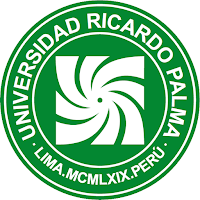Some characteristic features of the Japanese version of The Black Heralds
Some characteristic features of the Japanese version of The Black Heralds Some characteristic features of the Japanese version of The Black Heralds
Article Sidebar
Main Article Content
Abstract
In the intricate process of translating The Complete Poetry of César Vallejo into Japanese, which was published in 2016 by the Gendai Kikakushitsu Publishing House in Tokyo, the most difficult challenge for the translator was, without doubt, the reproduction of the poetic language of The Blacks Heralds, because in this collection of poems, our poet is still looking for his own style, sometimes imitating the existing currents such as Spanish American modernismo. In contrast to the post-Trilce works of Vallejo, for which the translator could invent his own style «closed in itself», The Blacks Heralds, required him to access several corpus of the modern Japanese expression —the vocabulary of Japanese poets of the same period as The Blacks Heralds, and even the Japanese translated versions of Western poetry— to reproduce the complex poetic formation which beats in the book.
Article level metrics
Downloads
Metrics
Article Details

This work is licensed under a Creative Commons Attribution 4.0 International License.
La revista utiliza una licencia Creative Commons para mostrar a los lectores y a los usuarios cómo se pueden utilizar los contenidos publicados.
Los contenidos publicados en la revista están bajo una licencia CC-BY 4.0, la cual permite:
- Compartir, copiar y redistribuir el material en cualquier medio o formato.
- Adaptar, remezclar, transformar y construir a partir del material para cualquier propósito, incluso comercialmente.
Bajo los siguientes términos:
- Atribución. Usted debe dar crédito de manera adecuada, brindar un enlace a la licencia, e indicar si se han realizado cambios. Puede hacerlo en cualquier forma razonable, pero no de forma tal que sugiera que usted o su uso tienen el apoyo de la licenciante.
La información de licencia se muestra e incrusta en las páginas de artículos y en ficheros de texto completo como sigue:
«Este obra está bajo una licencia de Creative Commons Reconocimiento 4.0 Internacional».
Jakobson, Roman (1959). «On Linguistic Aspects of Translation». En Brower, Reuben A. (ed.). On Translation. Boston: Harvard University Press, vol. 23, 232-239.
Matsumoto, Kenji (2016). «Is the Interlingual Translation of Poems Impossible?: Analysis of Technical Problems Arising from Translation of Complete Works of Poems of César Vallejo into Japanese». (Artículo en japonés). Ex Oriente, vol. 23, 1-23. Osaka: Universidad de Osaka.
Miyazawa, Kenji (2017). Haru to shura y otros poemas. Traducción de Alfredo López Pasarín Basabe. Madrid: Ediciones de La Discreta.
Rodríguez del alisal, María Dolores (2013). «Miyazawa Kenji. Poeta de la ingenuidad y de la naturaleza». Kokoro: Revista para la Difusión de la Cultura Japonesa, 11, 2-10. Recuperado de <https://dialnet.unirioja.es/servlet/articulo?codigo=4234447>. (Consulta 14 de mayo de 2019).
Sawa, Masahiro (2001). Shi no naritatsu tokoro. Nihon no kindaishi, gendaishi heno sekkin. (El lugar en que se levanta la poesía. Aproximaciones a la poesía moderna nipona. Libro en japonés). Tokio: Kanrin.
Vallejo, César (2005). Poesía completa. Edición de Antonio Merino. Madrid: Akal.
__________ (2007). The Complete Poetry. A Bilingual Edition. Edición y traducción de Clayton Eshelman. Berkeley y Los Ángeles: University of California Press.
__________ (2012). The Complete Poems. Traducción de Michael Smith y Valentino Gianuzzi. Reino Unido: Shearsman Books.
__________ (2014). Renlei de shipian. Saisaer Balüehuo shixuan. (Poemas humanos. Antología poética de César Vallejo. Libro en chino). Traducción de Zhao Zhenjiang. Pekín: Zuojia chubanshe.
__________ (2016). César Vallejo zen shishuu. (Poesía completa de César Vallejo. Libro en japonés). Traducción de Kenji Matsumoto. Tokio: Editorial Gendai Kikakushitsu.










